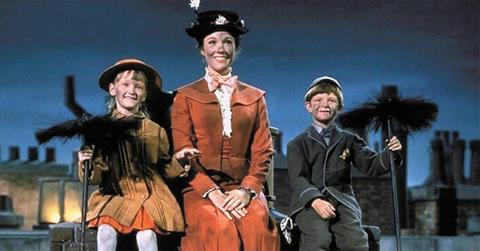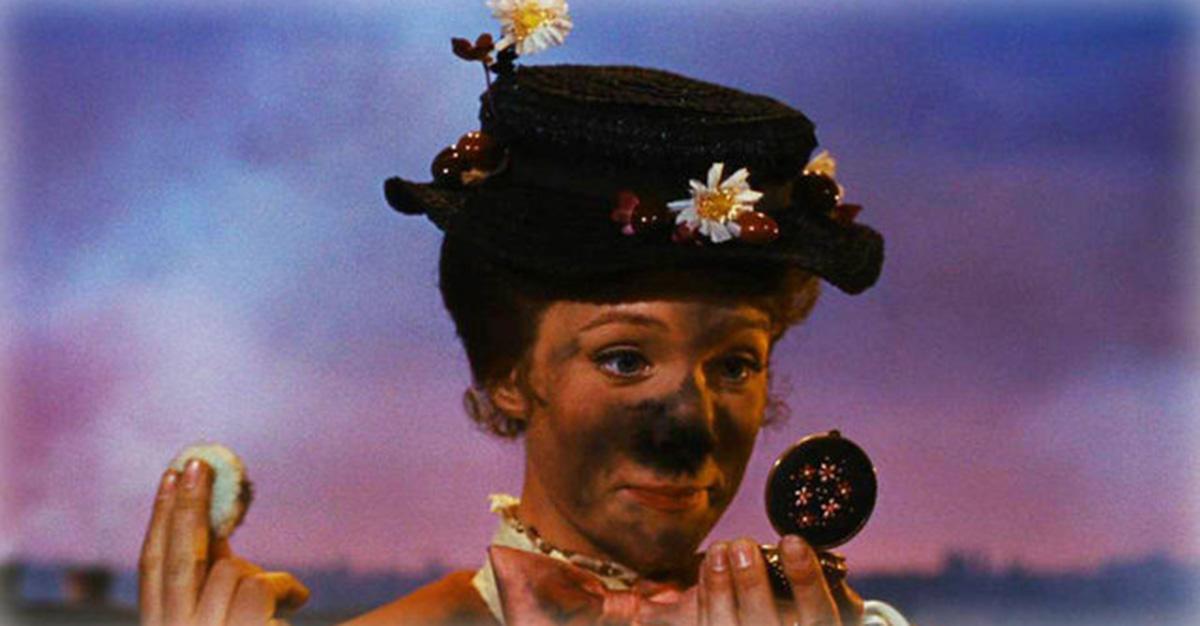The U.K. Age Rating of 'Mary Poppins' Just Went Up Due to a Derogatory Term
The term in question is "hottentots," a word that's used twice in the film to describe the chimney sweeps who have black soot all over their faces.
Published Feb. 27 2024, 9:34 a.m. ET

There has been no shortage of reevaluation of classic cinema in recent years. This reevaluation has seen many questioning whether these movies, which may be insensitive racially, feature gender discrimination, or have any number of other problems, are still appropriate to show to kids.
Until recently, though, the Disney classic Mary Poppins hadn't been part of that discussion. In February 2024, though, news broke that the U.K. would be updating the age rating of Mary Poppins because of a derogatory term used in the film. Now, many want to know what term was used and what the word means.

What derogatory term is used in 'Mary Poppins'?
To American ears, the language in Mary Poppins may seem to be almost totally inoffensive. There are no obvious slurs or other hateful language used. There is one word, though, that isn't as innocent as it may sound, even if some members of the audience aren't familiar with it.
The term in question is "hottentots," a word that's used twice in the film to describe the chimney sweeps who have black soot all over their faces.
The term is employed by Admiral Boom, a neighbor of the Banks family who believes he is still running a ship.
British film censors have upgraded the film's rating from U, which means that the movie is fit for all audiences, to PG, which means that parental guidance is advised. It's a subtle distinction, but one that comes entirely because of the two references to "hottentots" in the film.
What does hottentot mean?
Hottentot is a derogatory term that was originally used by the English to describe the nomadic peoples of Southern Africa. The "joke" in the movie is that Admiral Boom believes the chimney sweeps with soot all over their faces are actually Africans.
The term has fallen out of favor for obvious reasons, which is why many people were likely unaware of its meaning, and didn't know that it had a derogatory context.
The British Board of Film Classification first classified the film as U in 1964, when it was first released, and reaffirmed that classification again in 2013 when it was rereleased in theaters.
"Most recently, the film was resubmitted to us in February 2024 for another theatrical re-release, and we reclassified it PG for discriminatory language," a spokesperson for the organization explained.
"Mary Poppins (1964) includes two uses of the discriminatory term 'hottentots,'" the spokesperson explained. "While Mary Poppins has a historical context, the use of discriminatory language is not condemned, and ultimately exceeds our guidelines for acceptable language at U. We therefore classified the film PG for discriminatory language."
Mary Poppins was a tremendous success upon its initial release in 1964, and went on to win five Oscars, including Best Song and Best Actress. The board also said that their primary concern was children being exposed to a term that they might find distressing or one that they might repeat without fully understanding its context and derogatory meaning.